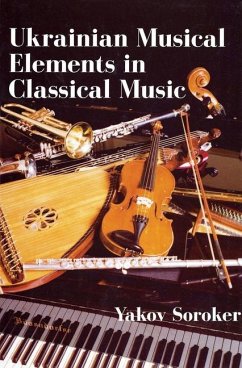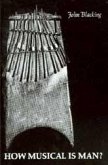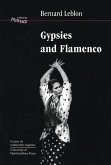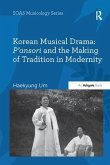This monograph is the first comprehensive account of the influence of Ukrainian motifs on the classical music of Europe and Russia from the eighteenth century through the first half of the twentieth. Going beyond earlier, fragmentary treatments that considered direct Ukrainian borrowings by classical composers, Yakov Soroker analyzes Ukrainian elements in the musical language of the composers and regions under study. Beginning with a survey of the modes, melodies, and rhythms characteristic of Ukrainian folk music, Soroker discusses the role of these elements in the works of the Viennese classical school, nineteenth-century German, Austrian and Hungarian composers, Frédéric Chopin and later Polish composers, Béla Bart--k, and Russian composers, including such major figures as Musorgsky, Tchaikovsky, Rimsky-Korsakov, Rakhmaninov, and Prokofiev, and lesser lights such as Khandoshkin, Serov, and Kabalevsky. Drawing on a vast musical literature and a lifetime of study, Soroker demonstrates the significant influence of Ukrainian themes, often wrongly identified as "Russian," "Hungarian," "Gypsy," or "Turkish," on classical music. The text is supplemented with one hundred musical examples and a bibliography citing works in several languages. Offering a fresh analytical approach and a wealth of new information, this book is an important contribution to the literature on classical music.
Hinweis: Dieser Artikel kann nur an eine deutsche Lieferadresse ausgeliefert werden.
Hinweis: Dieser Artikel kann nur an eine deutsche Lieferadresse ausgeliefert werden.








